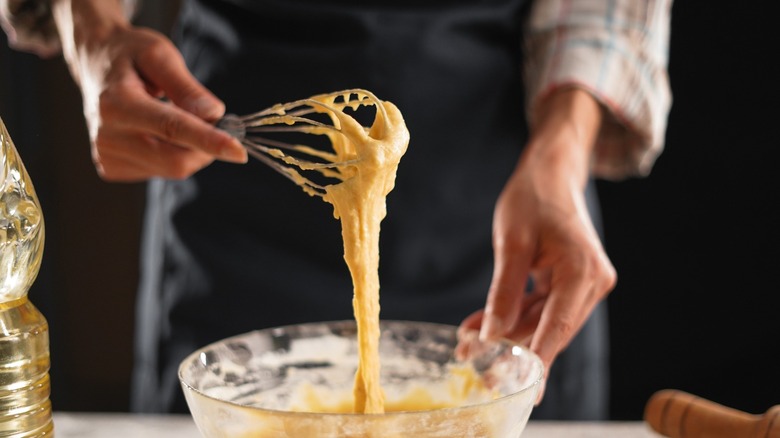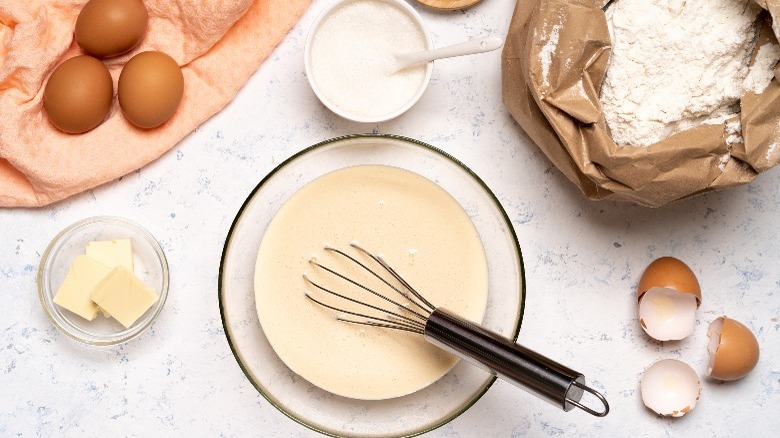How Overmixing Ruins Your Baked Goods
When you're whipping up a cake or a batch of cookies, you often come across instructions to mix to a specific degree — "until just combined," "until incorporated," or even "until moist but lumpy." One of the more common baking mistakes beginners make is thinking it's best to keep mixing a little longer for an even smoother consistency. But that leads to dense cakes and tough cookies.
Overmixing spells disaster for delicate baked goods because the longer you mix dough or batter, the more gluten forms. Gluten is a protein found in wheat and other grain products, like rye and barley. It impacts the elasticity and texture of baked goods and is a really important factor in bread making. As you work your dough, more gluten develops, forming a network of strands that grow stronger the more you mix and knead. Gluten development is what you want when you're making something more structured and chewy, like bread, but it's your enemy when you're trying to make soft, tender cookies or an airy, fluffy cake. People take great pains to ensure perfect pastry texture, such as making secret water swaps to make box mix cakes extra fluffy or using special flour.
If you want to avoid overly chewy or dense baked goods, don't get carried away with the mixing.
How to avoid overmixing
It's one thing to hear you shouldn't overmix your baked goods, but knowing exactly when to turn your stand mixer off is another matter. Many recipes don't specify how long it should take to stir ingredients, but a good rule of thumb is to stop mixing when you can no longer see obvious streaks of flour in the bowl. Once the batter looks uniform, there's no need to keep going. You'll save yourself some time and your finished product will be pillowy soft.
Some types of baked goods are more prone to overmixing than others. Pancakes are one example. They rely on a delicate balance between wet and dry ingredients and require minimal mixing to preserve their light texture. In such cases, less is more when it comes to stirring. You might feel an urge to beat away every small lump in the batter, but focus on the big picture. Lumps are OK as long as the dry ingredients are otherwise thoroughly incorporated into the batter. You can stop your mixing and enjoy soft, fluffy pancakes.
Cookies and cakes can tolerate a bit more mixing than pancakes, but you can still botch these beloved baked goods with too much stirring. For best results, make sure all your wet ingredients for cookies or cake are thoroughly mixed together before you add the flour. You can't form gluten until you mix flour with something wet, so any mixing you do before then doesn't harm your finished product.

